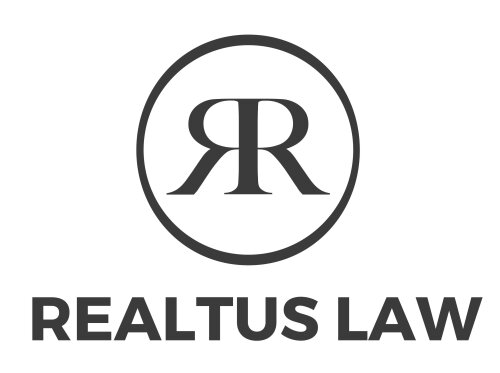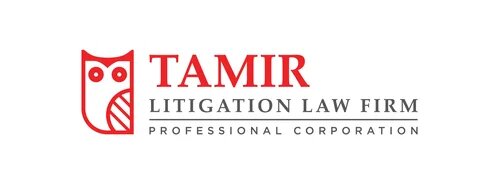Best Sanctions & Export Controls Lawyers in Richmond Hill
Share your needs with us, get contacted by law firms.
Free. Takes 2 min.
List of the best lawyers in Richmond Hill, Canada
Canada Sanctions & Export Controls Legal Articles
Browse our 2 legal articles about Sanctions & Export Controls in Canada written by expert lawyers.
- How Foreign Subsidiaries in Canada Can Meet 2026 Export Laws
- How Foreign Subsidiaries in Canada Can Comply With 2026 Export Controls Key Takeaways Navigating the 2026 updates to Canadian trade regulations requires foreign subsidiaries to localize their compliance protocols rather than relying entirely on global corporate frameworks. The revised regulatory environment enforces strict localized auditing and screening measures. Distinct Legal... Read more →
- Sanctions Compliance for Canadian Businesses - Trade Risks
- Canadian businesses are subject to strict liability under the Special Economic Measures Act (SEMA) and the Justice for Victims of Corrupt Foreign Officials Act (FAC), meaning intent is often irrelevant to a finding of a violation. All Canadian citizens and businesses, regardless of where they operate in the world, must... Read more →
About Sanctions & Export Controls Law in Richmond Hill, Canada
Sanctions and export controls are areas of law that regulate the transfer of goods, technology, services, and money across Canada’s borders. In Richmond Hill, as part of the Greater Toronto Area, individuals and businesses must comply with both Canadian federal laws and international obligations. Sanctions are restrictive measures imposed against specific countries, individuals, or organizations, while export controls govern the export of certain items, particularly those with potential military or dual use (civilian and military) applications. These laws help Canada address national security, international peace, and human rights concerns.
Why You May Need a Lawyer
Legal situations involving sanctions and export controls are often complex and carry significant risks. You may require legal help for a variety of reasons, including:
- Exporting sensitive goods or technologies from Richmond Hill to other countries
- Engaging in international business with countries or individuals subject to Canadian sanctions
- Receiving inquiries or notices from the Canada Border Services Agency or Global Affairs Canada
- Seeking to obtain or renew export permits or licenses
- Facing potential fines or prosecution for unintentional non-compliance
- Undergoing audits or investigations for export activity
- Understanding your obligations when conducting international transactions
Local Laws Overview
In Richmond Hill, sanctions and export controls are governed primarily by federal statutes and regulations. Key legislation includes:
- Special Economic Measures Act (SEMA): Enables Canada to impose sanctions, such as restrictions on trade or financial transactions, against foreign states, organizations, or individuals.
- Export and Import Permits Act (EIPA): Establishes controls on the import and export of certain goods and technologies, including weapons, military goods, and dual use items.
- United Nations Act: Implements United Nations Security Council sanctions into Canadian law.
- Customs Act: Governs the declaration, movement, and inspection of exported goods, with supporting rules for reporting and documentation.
Residents and businesses in Richmond Hill must comply with these laws, along with international treaties Canada has ratified. Ignorance of restrictions or failure to obtain proper authorizations can lead to severe penalties, including asset freezes, loss of export privileges, criminal charges, and reputational harm.
Frequently Asked Questions
What are economic sanctions?
Economic sanctions are legal measures that restrict or prohibit trade, financial transactions, or other economic activity with specific countries, individuals, or organizations due to concerns such as human rights violations or threats to international peace.
Who enforces sanctions and export controls in Richmond Hill?
Federal agencies such as Global Affairs Canada, the Canada Border Services Agency, and the Royal Canadian Mounted Police enforce these laws throughout Ontario, including Richmond Hill.
Do export controls apply to all goods and technologies?
No, export controls generally apply to a specific list of controlled items, such as military equipment, certain chemicals, sensitive technologies, and goods destined for sanctioned countries or end users.
How can I find out if my product requires an export permit?
You should consult the Export Control List under Canada’s Export and Import Permits Act or speak with a lawyer who can help you determine if your product or technology is controlled.
What happens if I violate sanctions or export controls laws?
Violation can result in significant financial penalties, criminal charges, loss of export privileges, and reputational damage. Compliance is crucial to avoid these outcomes.
Is it possible to obtain exceptions or permits for dealing with sanctioned countries?
In some cases, exceptions or permits can be granted for certain transactions or humanitarian purposes. Legal guidance is important to navigate these processes.
Does remote or digital transfer of technology require compliance?
Yes, the transfer of controlled technology or data by electronic means is considered an export and may require a permit or compliance with export control laws.
Are there special considerations for dual-use items?
Yes, items that have both civilian and military applications (dual-use items) are often strictly regulated and may require permits, depending on their classification and destination.
What records should businesses keep regarding exports?
Businesses should maintain detailed and accurate records of all export transactions, including permits, shipping documents, invoices, and end-user statements, for a minimum period as required by law (usually up to six years).
Where can I get more information about current sanctions and export controls?
Government websites provide updated lists of sanctions, controlled goods, and export control guidance. Consulting with a lawyer remains the best way to ensure compliance with current laws and regulations.
Additional Resources
For more guidance on sanctions and export controls in Richmond Hill, consider these organizations:
- Global Affairs Canada - Sanctions and Export Controls Division
- Canada Border Services Agency
- Canadian Association of Exporters and Importers
- Ontario Ministry of Economic Development, Job Creation and Trade
- Local legal aid and professional law associations in the York Region
Next Steps
If you or your business require legal assistance with sanctions or export controls in Richmond Hill:
- Gather all records and documentation related to your export activities or inquiries
- Identify the specific goods, technology, or services involved
- Contact a lawyer who specializes in sanctions and export controls in your area
- Consult with government agencies for guidance on permits and compliance requirements
- Stay informed on changes to Canadian laws and international sanctions lists
Timely legal advice is critical for mitigating risks and maintaining compliance with complex sanctions and export controls laws. An experienced lawyer can provide personalized assistance to help you understand your obligations and protect your interests.
Lawzana helps you find the best lawyers and law firms in Richmond Hill through a curated and pre-screened list of qualified legal professionals. Our platform offers rankings and detailed profiles of attorneys and law firms, allowing you to compare based on practice areas, including Sanctions & Export Controls, experience, and client feedback.
Each profile includes a description of the firm's areas of practice, client reviews, team members and partners, year of establishment, spoken languages, office locations, contact information, social media presence, and any published articles or resources. Most firms on our platform speak English and are experienced in both local and international legal matters.
Get a quote from top-rated law firms in Richmond Hill, Canada — quickly, securely, and without unnecessary hassle.
Disclaimer:
The information provided on this page is for general informational purposes only and does not constitute legal advice. While we strive to ensure the accuracy and relevance of the content, legal information may change over time, and interpretations of the law can vary. You should always consult with a qualified legal professional for advice specific to your situation.
We disclaim all liability for actions taken or not taken based on the content of this page. If you believe any information is incorrect or outdated, please contact us, and we will review and update it where appropriate.









